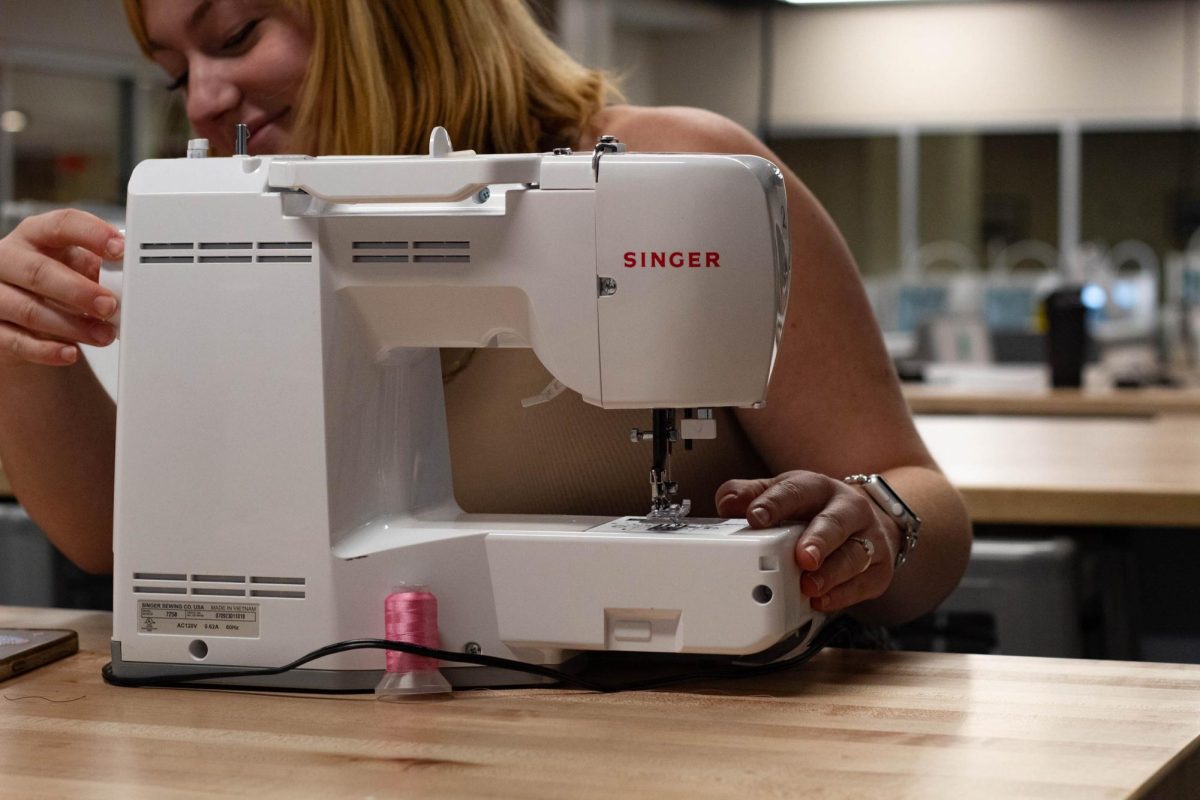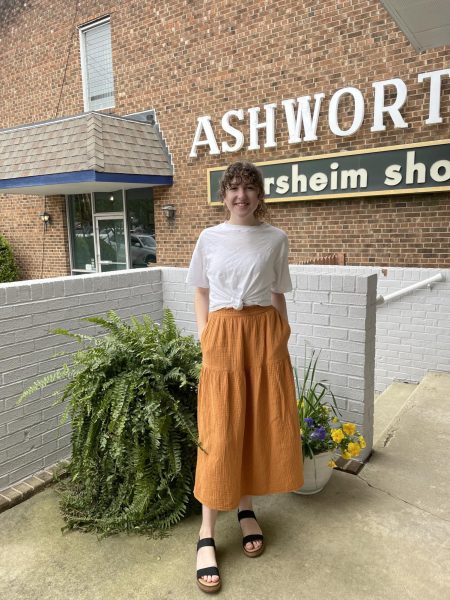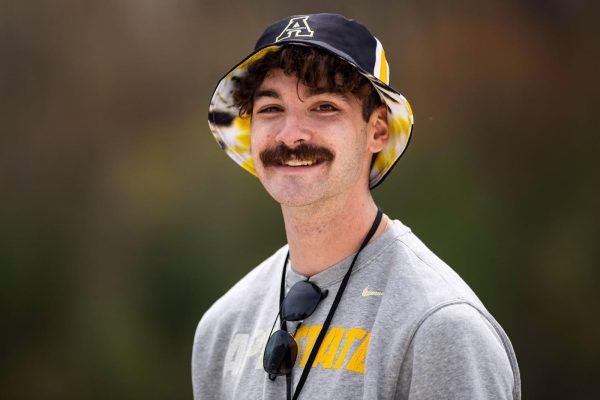Every year, Americans generate about 16 million tons of textile waste, according to the Environmental Protection Agency. Even though many Americans donate their old clothes, a lot of them end up discarding their clothes instead, which results in landfills overwhelmed with waste.
A campus club, the Appalachian Apparel Association, or AAA, is taking on sustainability in fashion by sharing practical skills for how to upcycle and fix old clothes; they are also giving lectures to help educate members on the fashion industry.
The club started back up in 2022 after losing members and becoming inoperable during the pandemic. The current leadership decided to revive it out of their shared love of fashion and want of community.
“It’s a place where people who are interested in fashion can connect and really talk about something they all love and are passionate about,” said vice president and sophomore apparel design major Jaidyn Toomey, said. “Everyone is so welcoming and encouraging.”
Meeting every Monday, either in the Reich College of Education or the Makerspace in Belk Library, they discuss how they can give back to the community. One way they do this is by hosting a mending initiative: a time where AAA members offer their sewing skills to help mend community member’s clothes and share their knowledge with anyone who wants to learn.
Toomey said mending clothes can make a huge difference in increasing the life of your clothes and keeping them out of the landfill.
The practice of upcycling clothes is another activity the mending initiative pursues.
Upcycling is taking old clothes and giving them new life. This approach not only revives old clothes, but counters the disposable nature of fast fashion. Haylee Hacker, a sophomore apparel design merchandising major and new member of the club, said this practice intersects with the cyclical nature of trends, which helps with mitigating waste.
When the club started back up, the leaders of AAA introduced fashion literacy seminars, consisting of student-led and created presentations that highlight important topics in the fashion industry.
Last month, they hosted a fashion literacy seminar about Hispanic Heritage month and the ways in which Hispanic cultures have influenced and contributed to the fashion industry.
Hacker says the seminars are one of the things she enjoys the most about the club because they allow her to learn about designers and industry information, which are things that she didn’t have in her hometown.
The seminars are open to all students, not just members of the club, and are designed to educate students on issues they may not have heard about on their own. At a meeting held on Oct. 23, they discussed and voted on topics to present for the November fashion literacy seminar.
Brooke Walker, treasurer of AAA and junior journalism major, emphasized the importance of sustainable fashion and offered advice for how to reduce waste.
“Thrifting, shying away from fast fashion, recycling and upcycling clothes can all help. I know college students, we’re all broke, but it’s possible to make small changes in our own lives,” she said.
To see more of AAA and what they’ve been up to, follow them on Instagram.



